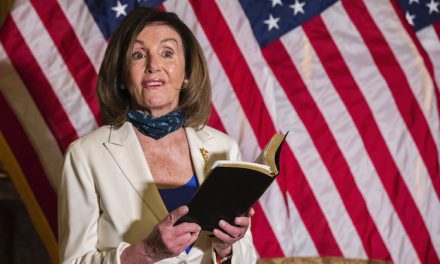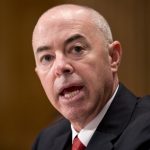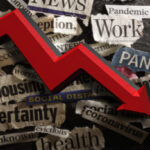WASHINGTON (AP) — Chair Jerome Powell on Tuesday underscored the Federal Reserve’s determination to keep raising interest rates until there is clear evidence inflation is steadily falling — a high-stakes effort that carries the risk of causing an eventual recession.
The Fed’s increases in its benchmark short-term rate typically lead, in turn, to higher borrowing costs for consumers and businesses, including for mortgages, auto loans and credit cards. The economy usually slows as a result.
“What we need to see is inflation coming down in a clear and convincing way,” Powell said in remarks to a Wall Street Journal conference. “And we’re going to keep pushing until we see that.”
The Fed chair, who was confirmed last week by the Senate to a second four-year term, suggested that the Fed would consider raising rates even faster if price increases failed to moderate.
“What we need to see,” Powell said, “is clear and convincing evidence that inflation pressures are abating and inflation is coming down. And if we don’t see that, then then we’ll have to consider moving more aggressively. If we do see that, then we can consider moving to a slower pace.”
Powell’s remarks Tuesday followed other statements he has made that have indicated the Fed is implementing a series of rate hikes that could amount to the fastest tightening of credit in more than 30 years.
At a meeting earlier this month, the Fed raised its key rate by a half-point — double the usual increase — for the first time since 2000, to a range of 0.75% to 1%. And at a news conference after the meeting, Powell suggested that Fed officials would raise its rate by a half-point at both its June and July meetings.
The Fed chair appeared unconcerned Tuesday about the stock market’s sharp decline over the past six weeks. Those declines reflect concern on Wall Street that the Fed’s efforts to rein in inflation, which has reached 40-year highs, could weaken the economy so much as to trigger a recession.
Interest rates across the economy have also risen steadily. They include the yield on the two-year Treasury note, which Powell pointed to as a sign that Wall Street expects the Fed to keep tightening credit to slow borrowing, spending and price increases.
“It’s been good to see financial markets reacting in advance” of upcoming rate hikes, Powell said. “That’s what we need.”
The S&P 500, a broad market index, has tumbled about 15% from its January peak. That’s just short of the 20% decline that marks a bear market. Yet many economists say Powell is unlikely to let market disruptions change the Fed’s path, given that inflation has soared to such high levels and is causing hardships for millions of households.
Copyright 2022 The Associated Press. All rights reserved. This material may not be published, broadcast, rewritten or redistributed without permission.
—-
This content is published through a licensing agreement with Acquire Media using its NewsEdge technology.



















Or until the economy collapses.
I fear that is their GOAL..